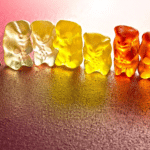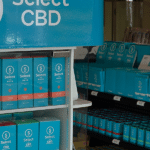The misnamed Smart Approaches to Marijuana (SAM) recently produced a “fact sheet” entitled, Everything You Need to Know About CBD, that seeks to justify the continued prohibition of cannabis by misinforming the public about cannabidiol and THC.
Cannabidiol (CBD), a “nonpsychoactive” component of marijuana, is a hot ticket right now among medical scientists and heath professionals. A growing number of physicians are recommending CBD-rich cannabis oil extracts for patients in states where medical marijuana is legal. CBD has been shown to shrink malignant tumors, improve insulin sensitivity, quell anxiety, and ease chronic pain—without making people feel high. Extensive preclinical (and some clinical) research validates the experience of many patients, including children with catastrophic seizure disorders, who successfully medicate with CBD-rich products.
Kevin Sabet, cofounder and director of SAM, stated in a letter to the Boston Globe: “Medical marijuana is a big fat headache that serves no one but people who want to get high.” But the clamor for non-psychoactive CBD-rich cannabis proves Sabet is wrong. Medical marijuana is not—and never was—just a front for stoners.
An anti-marijuana ideologue who served as an advisor to the drug czar’s office under Obama and George W. Bush, Sabet takes pride in Rolling Stone’s description of him as “Legalization Enemy #1.” Salon called him “the quarterback of the new anti-drug movement.” If Sabet is the quarterback, then what’s the game plan?
Not long after Project CBD was formed in 2010, we predicted that recalcitrant drug warriors would attempt to coopt the news about CBD to advance a prohibitionist agenda. As we note on Project CBD: “Marijuana prohibitionists will try to exploit the news about CBD to further stigmatize high-THC cannabis, casting The High Causer, THC, as the bad cannabinoid, whereas CBD is pegged as the good cannabinoid. Project CBD categorically rejects this dichotomy in defense of whole plant cannabis therapeutics.”
SAM’s CBD polemic essentially boils down to this:
- Specific components of the marijuana plant, including CBD, have medical value, but the marijuana plant itself does not have medical value.
- THC, marijuana’s psychoactive component, is a horrible, dangerous substance, and children should not be exposed to it under any circumstances.
- Marijuana-derived products are against federal law and are not adequately tested for safety and efficacy, unlike FDA-approved corporate pharmaceuticals.
- State governments should not legalize marijuana to facilitate access to CBD. Those who need CBD should wait patiently until the federal government decides what CBD-rich medicines we are allowed to consume.
SAM’s latest missive asserts: “We should find a way to get CBD to patients who need it, but we owe those who suffer a product with safety assurances. Many products on the current ‘medical’ marijuana market have no such assurances, are never tested in FDA-registered labs, and have no guarantees of quality and content or information on dosing or side effects.”
True enough. CBD-rich products should be made from organically grown cannabis, lab-tested for potency, mold and pesticides, and labeled for content and dosage. Certain CBD-products meet these criteria; others do not. Measurable doses of high quality, CBD-rich oil extracts, initially introduced in California, are currently available in some medical marijuana states. But cannabis products, including CBD-rich varieties, can’t be tested by “FDA-registered labs” because of the prohibitionist policies that SAM supports. Marijuana’s illicit status makes it impossible for analytical labs to handle such products with the FDA’s blessing.
In the world according to SAM, a product can’t be a medicine unless the FDA approves it as safe and effective. The FDA, however, is not in the business of approving plants as medicines. And the FDA approval process ensures neither safety nor efficacy. There are numerous examples of the FDA approving lethal Big Pharma meds that cure no better than a placebo. Pharmaceutical companies routinely hide clinical trial data about adverse side effects, falsify studies to win approval, and then rely on bribery, fraud, and deception to market dangerous drugs to unsuspecting patients, including children—all with a wink and a nod from the FDA, which treats corporate criminals like royalty. Big Pharma pays the FDA to fast-track cursory reviews, and the FDA enables widespread corruption within the pharmaceutical industry by routinely accepting drug company claims at face value while ignoring pertinent safety data. FDA scientists and whistleblowers risk retaliation by FDA management when they challenge Big Pharma prerogatives.
SAM is silent about FDA and Big Pharma malfeasance, while perpetually demonizing marijuana and THC. SAM warns that products infused with CBD, the good cannabinoid, are tainted with varying amounts of THC, The Horrible Cannabinoid. SAM alludes to unnamed physicians who “report instances of THC toxicity in children taking ‘high CBD’ preparations” and parents who “are horrified that their children become ‘high.’”
SAM contends that the best course of action “would be to remove THC entirely from a CBD product.” Pure CBD is the only legitimate option, according to the non-medical experts at SAM, which claims there is “no reliable scientific evidence that THC is necessary to synergize the effects of CBD.”
Actually, there is solid scientific evidence that CBD and THC potentiate each other’s therapeutic effects. The California Pacific Medical Center (CPMC) in San Francisco studied the effects of CBD and THC on breast cancer cells and found that both compounds have significant antitumoral properties, but the combination of CBD and THC had a more potent antitumoral effect on human cell lines than either compound when tested alone.
In another experiment, CPMC scientists found that CBD enhances the inhibitory effect of THC on human glioblastoma cells, a deadly form of brain cancer. “THC’s anti-cancer benefits were derived largely from activating cannabinoid receptors, something CBD is not known to do,” explained Dr. Jahan Marcu, lead author of the glioblastoma study. “CBD works through other molecular pathways. It enhances the benefits of THC while reducing side effects.”
The painkilling properties of THC were initially documented in the Journal of Clinical Pharmacology and Therapeutics in 1975. Subsequent clinical studies in Europe demonstrated that whole plant THC combined with whole plant CBD work better than THC alone for treating chronic pain.
U.S. government-sponsored research at the National Institute of Mental Health determined that THC and CBD both protect brain cells from the effects of stroke and acute head injuries. Drawing upon this research, the U.S. Department of Health and Human Services secured a patent, titled “Cannabinoids as Antioxidants and Neuroprotectants,” in 2003. The patent asserted that THC and CBD “are found to have particular application as neuroprotectants, for example in limiting neurological damage following ischemic insults, such as stroke and trauma, or in the treatment of neurodegenerative diseases, such as Alzheimer’s disease, Parkinson’s disease and HIV dementia.”
Other scientific findings that SAM prefers to ignore:
- Harvard University researchers found that THC cuts tumor growth in common lung cancer in half and “significantly reduces the ability of the cancer to spread”—which helps to explain why smoking marijuana doesn’t cause lung cancer.
- Investigators at the Scripps Research Institute in La Jolla, California, showed that THC inhibits an enzyme responsible for the accumulation of amyloid plaque that disrupts communication between brain cells, the hallmark of Alzheimer’s-related dementia.
- A 2010 study in the Journal of Clinical Psychopharmacology reported that oral THC improved symptoms of ADHD and Tourette’s syndrome in a teenager.
The notion that high THC marijuana could be anything but terrible for children is anathema to SAM, which maintains that “chronic use of THC can impair IQ in adolescents.” This oft-repeated canard is based on a single study (later repudiated in the same journal) that failed to establish a causal link between juvenile marijuana smoking and lower IQ. Scientists have identified many factors that contribute to impaired IQ—and cannabis isn’t one of them. A junk food diet lowers IQ and damages memory. Children who regularly skip breakfast—poor kids—have lower IQs than other children.
SAM’s chronic fear-mongering about THC and brain damage is at odds with a 2012 study published in the journal Alcoholism: Clinical & Experimental Research, which found that a teenager who consumes alcohol is likely to have reduced brain tissue health, but teen marijuana use shows no effect on brain tissue.
Single-molecule THC is classified as a Schedule III drug, a category reserved for medically valuable substances with low abuse potential that are unlikely to lead to physical dependence. Whole plant marijuana, meanwhile, continues to be classified as a dangerous Schedule I drug with no medical utility.
SAM tries to reconcile Uncle Sam’s illogical, incoherent, and unscientific marijuana policy by emphasizing the supposed superiority of single-molecule medicine over “crude” whole plant remedies. SAM’s single-molecule fetish reflects a cultural and political bias that privileges corporate pharmaceuticals. Single-molecule medicine is the predominant corporate way, the Big Pharma way, but it’s not the only way, and it’s not necessarily the best way to benefit from cannabis therapeutics.
Marijuana contains several hundred compounds, including various flavonoids, aromatic terpenes, and dozens of minor cannabinoids in addition to THC and CBD. Each of these compounds has specific healing attributes, but when combined they create what scientists refer to as a synergistic “entourage effect,” so that the therapeutic impact of the whole plant is greater than the sum of its single-molecule parts.
SAM says it’s working on “a long-term solution to expand and accelerate the current research so that every patient who might benefit from CBD can obtain it.” But SAM’s belated promise to help bring CBD to the masses rings hollow given its ongoing support for cannabis prohibition, a dishonest, venal, and destructive policy that has thwarted clinical research and impeded medical progress for decades to everyone’s detriment. For this SAM owes America an apology.
Since the passage of Proposition 215, California’s landmark 1996 ballot measure that legalized marijuana for therapeutic use, a unique laboratory experiment in democracy has unfolded in the Golden State and elsewhere with positive results. Thanks to the rediscovery of CBD-rich cannabis strains by outlaw plant breeders and growers in Northern California five years ago, cannabis clinicians and medical marijuana patients can avail themselves of additional therapeutic options today.
Successful CBD-rich treatment regimens have extended the lives of advanced cancer patients and others suffering from a wide range of diseases. Most remarkable of all is the dramatic improvement in numerous cases of pediatric epilepsy attributable to CBD-rich oil extracts, which stop seizures when nothing else is effective.
But CBD-rich remedies with little THC don’t always work. Parents of epileptic children have found that adding some THC helps with seizure control in many instances. For some epileptics, THC-dominant strains are more effective than CBD-rich products.
Physicians and patients are finding that different ratios of CBD and THC are optimal for different conditions and individuals. A CBD-rich strain or product with little THC is not necessarily a superior treatment option compared to a balanced CBD-rich remedy with an equal amount of CBD and THC. A CBD-rich extract or strain with little THC might be optimal for treating anxiety and many seizure disorders, whereas pain syndromes, cancers, and neurodegenerative conditions could benefit from an appropriate amount of THC. One size doesn’t fit all with respect to cannabis therapeutics, and neither does one compound or one product or one strain.
Martin A. Lee is the director of Project CBD. He’s authored and edited several books, including Smoke Signals, Acid Dreams, and The Essential Guide to CBD. © Copyright, Project CBD. May not be reprinted without permission.








